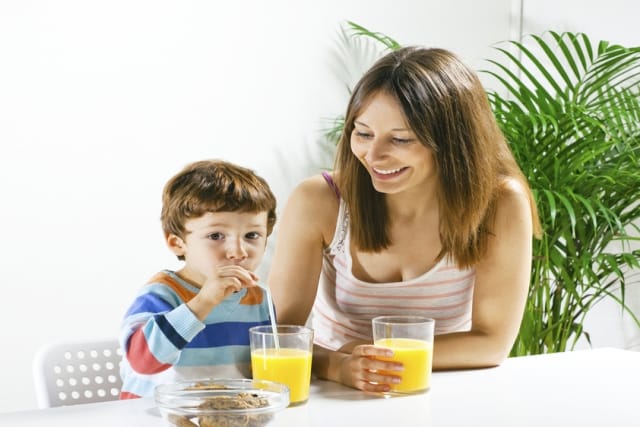
High Fiber Diet Can Prevent Bedwetting
High Fiber Diet Can Prevent Bedwetting
Bedwetting simply refers to the uncontrollable passing of urine during sleep and it is very common in childrens. Bedwetting is stressful, embarrassing and inconvenient for your child, too. As with most conditions, a healthy diet can go a long way in the path towards improvement. Fiber diet is important, since bedwetting often occurs at the same time as constipation. The pressure of constipation presses against the bladder wall, resulting in unwanted leakage. Wheat-bran, vegetables and good fluid intake go a long way to increase fiber and combat constipation. Eating the high fiber foods is the best way to improve the bedwetting problems. Skipping out on a daily dose of fiber often leads to constipation and bedwetting. Foods that are high in fiber, vitamin B12 and Omega3 are all recommended to help control or reduce bedwetting. Recommended food includes:
- Vegetables, legumes and beans
- Fresh fish and seafood
- Dried fruits, Nuts, Eggs
- Oats, wheat bran, muesli and other wholegrain cereals
- Whole grain breads
Just keep in mind the recommended daily fiber intake is 25 to 30 grams a day. Increase the amount of fibrous food consumed, like fresh fruits, vegetables, whole grains and cereals, as they flush out the harmful toxins from the body and are good to stop or control bedwetting.
For breakfast incorporate oatmeal either on its own or add some fruit to encourage your child to eat it. Oatmeal can help lower cholesterol, while keeping your bodily functions regular throughout the day. Oatmeal has 4 grams of fiber, while fruits like apples contain 4.4 grams and walnuts 2 grams of fiber.
For lunch pack whole-wheat spaghetti instead of white pasta for a fulfilling meal. Whole-wheat pasta can be cooked the same way as regular pasta. Adding vegetables to the sauce can help increase your fiber intake. Whole-wheat pasta has over 6 grams of fiber helping you reach your daily fiber intake.
After a fulfilling breakfast and lunch, a light dinner can even be loaded with fiber. For example, a stir-fry or mixture of brussels sprouts, broccoli and artichoke over a chicken breast is easily 19 grams of fiber.
Including fiber into your child’s diet can help your child to have regular bowel movements and reduce or stop bedwetting. You may like to Consult your child’s pediatrician to find out how constipation leads to bedwetting, and how you can increase your child’s fiber in-take
Adjusting to a bedwetting friendly diet is a win-win situation for parents and children alike. Since all of the foods recommended to improve bedwetting are also healthy life choices, the whole family can eat the same foods. This can help your child feel more accepted in the family unit and set-up good eating habits for life.
Visit Chummie – The World’s Best Bedwetting Alarm for buying a bedwetting alarm tips, advice and support.
Related Articles
Why There is Relapse into Adult Bed Wetting?




No Comments
Sorry, the comment form is closed at this time.